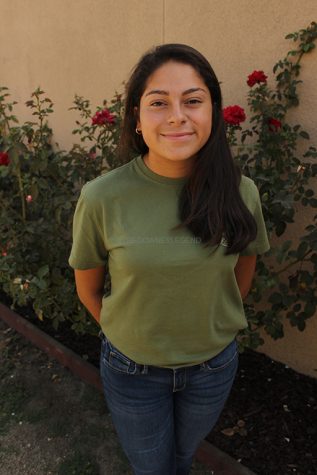A Shift
September 27, 2017
This past month on Twitter, news feeds have been filled with a plethora of controversial topics; some of which consist of neo-nazis and white supremacists. In the midst of this, on Friday, Sep. 1, what seemed to be a natural scroll through Twitter suddenly became more significant than the day before. The memes that derive a subtle laugh and a light mood are then casted by confusion as the next item on the feed is a video. Broadly, the video shows a scene of police brutality, the viewer then may ask of where the victim is, but she is right there in plain sight- she is a white woman. This event occurred in the University of Utah hospital, in which a detective reacted unruly with a nurse. Even though his reason is known, it is not at all valid.
The surprising video entails a nurse, Alex Wubbels, informing Detective Payne that she does not have the right to draw blood from an unconscious patient. At first, the video seems like a calm conversation between two professionals; however, Payne abruptly charges towards Wubbels to arrest her. The video intensifies when Payne chooses to wrap his arms around Wubbels as he forcefully tries to handcuff her. In all, the video shows the injustice of Wubbels’s arrest and how Payne took advantage of his profession title.
The video is baffling; the way in which Payne swiftly gets a hold of Wubbels does not show any signs of hesitations from Payne. At that moment, he intentionally inflicts emotional and physical pain towards Wubbels as the video shows her crying for help. In this case, one can easily surmise that this is not the first time that Payne has arrested a person. Again, he is a detective. However, has this task become second nature for Payne? If so, it is the sad truth since people have been greatly affected by police brutality. Even if Payne has forcefully arrested an individual before, it does not justify his act towards Wubbels. In that case, one can assume that like Payne, other officials do need to be reminded of the limited power that their profession truthfully allows them to have. Thus, a perception as such then does become dangerous for the people.
Aside from the injustices of the event, what does this mean for police brutality? Ideally, police brutality victims usually are people who are ethnically or religiously different- all of which lead to the sense of racism. Although, does Payne have a hate towards Wubbels? Most likely not, but this does bring in a new light to police brutality. Now, we see a white woman as the victim which causes a change to what was known about police brutality- that the victim is always of color. By Wubbels being attacked, a new audience is tuned in to recognize the existence of police brutality. Even though it was a minor incident that certainly does not equate to the beatings of Rodney King, it still helps to remind us that police brutality is still prevalent today and to all races.



